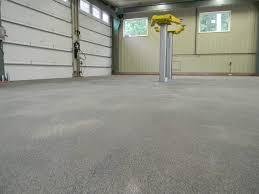Quartz Flooring Solutions is an increasingly popular choice for both residential and commercial spaces, thanks to its durability, aesthetics, and versatility. Combining the beauty of natural stone with the strength and resilience of modern materials, quartz flooring offers a long-lasting solution for areas that require a balance of elegance and practicality. Whether you’re looking to upgrade your home or seeking a reliable option for high-traffic areas, quartz flooring could be the ideal fit. Let’s explore why quartz flooring solutions are considered among the best for any space.
What is Quartz Flooring?
Quartz flooring is a composite material that typically combines crushed natural quartz with resin to create a hard, non-porous surface. The blend of quartz and resin produces a floor that is highly durable and resistant to wear, making it ideal for areas exposed to heavy foot traffic. The quartz is available in various colors, which can be mixed and matched to create a wide range of designs and finishes, from sleek and modern to more textured and natural-looking surfaces.
Advantages of Quartz Flooring
1. Durability
Quartz flooring is one of the most durable options available on the market. Quartz is one of the hardest minerals, which makes this type of flooring highly resistant to scratches, stains, and chips. It can withstand heavy foot traffic, making it an excellent choice for commercial spaces like retail stores, restaurants, and offices, as well as in homes.
2. Water and Stain Resistance
Quartz flooring is non-porous, which means that it does not absorb water, making it resistant to stains from spills. This quality also makes quartz floors easy to clean, as liquids and dirt sit on the surface and can be wiped away easily. This water resistance makes quartz flooring ideal for bathrooms, kitchens, and basements where moisture can be a concern.
3. Low Maintenance
Quartz flooring requires minimal upkeep. Regular sweeping and occasional mopping are enough to maintain its pristine appearance. Since it resists stains and scratches, there is no need for harsh chemicals or expensive cleaning products, making quartz flooring an eco-friendly and cost-effective option in the long run.
4. Versatile Design Options
One of the most significant benefits of quartz flooring is its design versatility. Quartz is available in a wide variety of colors, textures, and finishes, allowing you to create custom flooring that suits your personal or commercial space’s aesthetic. Whether you want a sleek, polished look or a textured, more natural stone appearance, quartz flooring can deliver the style you desire.
5. Eco-Friendly Option
Many quartz flooring options are made using recycled materials, making them an eco-conscious choice. The manufacturing process is less energy-intensive than that of other natural stones, reducing the environmental impact.
Applications of Quartz Flooring
1. Residential Spaces
Quartz flooring is a fantastic option for homes. It works well in kitchens, bathrooms, entryways, and even living rooms due to its water resistance and durability. Its stylish appearance can complement any home décor, whether you’re looking for a sleek, contemporary look or a more natural, rustic vibe.
2. Commercial and Industrial Spaces
In high-traffic areas like retail stores, offices, and warehouses, quartz flooring’s durability is a significant asset. It stands up to the wear and tear of daily use without showing signs of damage, making it a cost-effective investment for commercial and industrial applications.
3. Healthcare and Educational Facilities
For hospitals, clinics, and schools, hygiene is a top priority. The non-porous surface of quartz floors makes them easy to clean and maintain, reducing the risk of bacterial growth. This quality makes quartz flooring ideal for environments where cleanliness is paramount.
Installation Process
The installation of quartz flooring typically involves the following steps:
- Surface Preparation: The subfloor must be cleaned and leveled to ensure a smooth surface for the quartz tiles or slabs.
- Adhesive Application: A specialized adhesive is applied to the subfloor to bond the quartz flooring material securely.
- Laying the Quartz Flooring: The quartz tiles or slabs are carefully laid in place, with attention to detail to ensure alignment and design consistency.
- Grouting and Sealing: Once the quartz is set, the joints are grouted and sealed to ensure a watertight finish and to enhance the longevity of the floor.
While it’s possible to install quartz flooring as a DIY project, it is recommended to hire professionals for large-scale or complex installations to ensure the best results.
Cost Considerations
Quartz flooring tends to be more expensive than other types of flooring, such as vinyl or laminate, due to its durability, design flexibility, and longevity. However, the initial investment is often offset by the long-term savings in maintenance and replacement costs. The price of quartz flooring varies based on the type of quartz used, the complexity of the installation, and the design.
Conclusion
Quartz flooring solutions offer a winning combination of style, durability, and low maintenance, making them an ideal choice for both residential and commercial spaces. Its resistance to water, stains, and daily wear makes it suitable for a variety of environments, while its aesthetic versatility ensures that it can match any design preference. Though it may come with a higher upfront cost, the long-term benefits in terms of longevity and ease of maintenance make quartz flooring a smart investment.
If you’re seeking a reliable, stylish, and durable flooring option, quartz is certainly worth considering for your next renovation project.







More Stories
Fire Safety in Skyscrapers: Cladding Matters
Boost Sale with Booster Shopify Theme Feature
Builders Risk Insurance in California